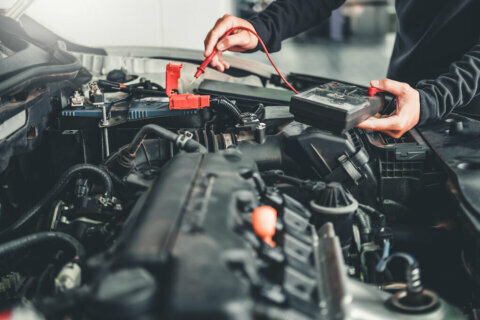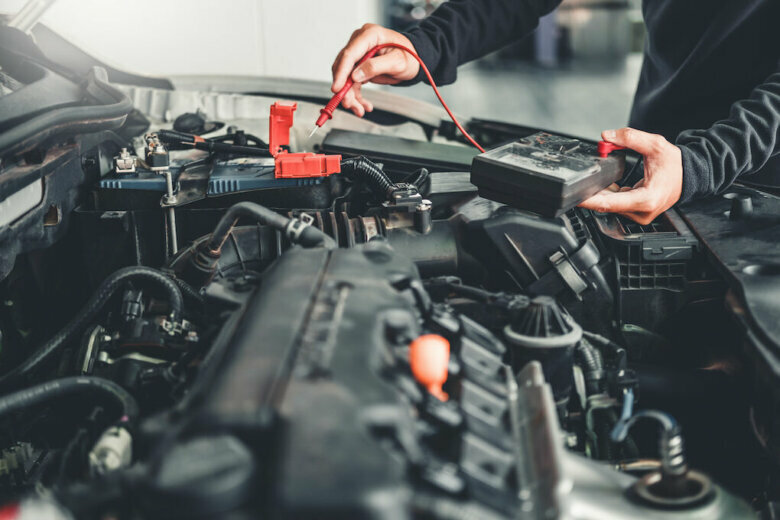
With many people working from home during the coronavirus outbreak, AAA-Mid-Atlantic and a local repair shop are reporting an increase in the number of service calls for dead batteries.
“We haven’t seen this ever, and I hate to say it, but it’s going to be good for business once this is all over,” said David “Woody” Woodall, the manager at Metro Motor Capitol Hill Exxon, in D.C.
“No one’s been driving,” he said.
AAA has reported a 32% increase in service calls for dead batteries in Maryland, from 10,037 in April 2019 to 13,200 this April.
In Virginia, AAA has reported a 28% increase in calls since this time last year, from 8,059 in April 2019 to 10,353 this April.
In D.C., AAA said calls for dead batteries are down by 98% since last year — from 1,773 in April 2019 to only 31 calls this April.
The battery calls made up 42% of AAA service calls and resulted in more than 13,200 responses, AAA Mid-Atlantic said.
Signs of a weak battery may include the following:
- Clicking noises when turning the key;
- Engines turning over slowly;
- Dim interior lighting;
- Warning lights on the dashboard.
Woodall said the low number in D.C. is probably because no one has started their cars yet.
“Modern cars are always on a little bit. They’re always drawing the battery down, whether you’re using it or not … so if you don’t run it for three or four weeks and it’s a weak battery, it’s going to be dead,” Woodall said.
Average daily trips in D.C. were down 45% on April 28, compared with a baseline daily average during the period from Feb. 10 through Feb. 23, according to AAA and data from TrafficCast.
Overall, calls for roadside assistance in D.C. are down 66% as there are fewer vehicles on the roadways, AAA reported.
Woodall encouraged drivers to take their cars for a spin, adding that simply starting the car in the driveway won’t do the trick because it doesn’t give enough energy to charge the battery.
“You’ve got to go, at least go somewhere, drive for 30 minutes, at least once a week. You’d be safe in your car,” he said. “You don’t have to get out of it once you get wherever you’re going. But if you start the car and just let it run in the parking lot, it really doesn’t do anything and it may even hurt the battery.”
AAA Mid-Atlantic said other issues about which vehicle owners should be aware include low tire pressure, stale fuel, rusty brakes, or issues with rodents or other animals that have gotten into cars.
- Sign up for WTOP alerts
- Where to get tested for COVID-19 in the DC region
- 3 reasons COVID-19 is on the rise in Fairfax County
- Coronavirus FAQs: What you need to know
- Hogan’s relaxed coronavirus bans on Md. boating and fishing not enough for some
- Latest coronavirus test results in D.C., Maryland and Virginia









